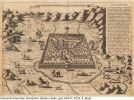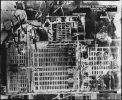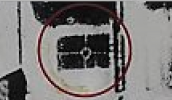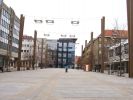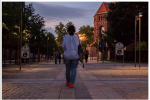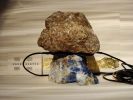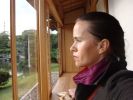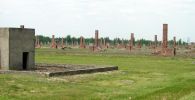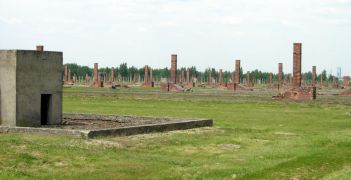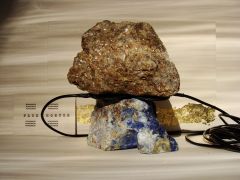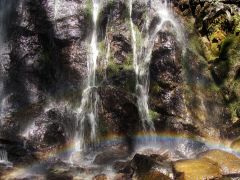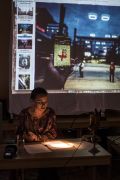A textual sketch for an artist talk presented at the Soundworms gathering, September 2017 in Mariánské Radčice, Czechia.
| ko kaplje noči za zmeraj potonejo senco spanja |
when drops of night submerge forever into the shadow of sleep |
Everywhere I go, I search for rivers, go and listen to them, record them. Sometimes I encounter walls (recently that were high walls along the river Wien, in Vienna). To rivers and walls (man built walls) people have given a lot of thought and effort in the past and in recent times. Flowing water, however controlled and structured, is always a field of dystopia (unfamiliar, dangerous, changeable force, in the end, the sequence is not predictable or controllable). One could say, regarding the conceptual frame of this gathering, that it is old nature … rivers, however changed through human input, carry old nature in their flow.
Rivers. Water is the ultimate available matter of all living beings; it is even much more than man’s pure freedom. Corporate control over water stands for the ultimate destruction of man as a free being – human bodies are composed of about three-quarters water – we are not “as” water, we “are” water. Privatizing water supplies literally stands for a comprehensive privatization of human beings. As well as all other beings, and everything else.
Rivers. Flowing water sharpens the hearing, then confuses it; it evokes premonitions and auditory hallucination, and wakes up the memory of the body (and spirit).
For the last sound work, Flux hortus (paradise #1), I started to re-think paradise. At the beginning, Flux hortus was an aural water garden, a timeless book in space, a library of rivers, designed for listening in motion (using radio aporee ::: miniatures for mobiles). Eventually it evolved toward the manifestation of a sonopoetic variation on a cosmic garden. I started to wonder what paradise sounds like.
Paradise, pairi-daeza (an old word, with roots in Avestan) means an enclosing wall, round, the setting aside of a piece of land for various purposes – for hunting (to easier control the area), for irrigation amid the dry lands of Old Persia. With isolation from “hostile nature,” experiments in the coexistence of humans, animals, plants and water were enforced. What we know today as a classical garden of paradise is a model of an old Persian garden, with four sides, a square structure, including water, a fountain, and a tree in the center.
One of the most perverse cosmic gardens we find in human history is the one situated in the concentration camp Auschwitz Birkenau. The garden was close to the gas chambers. People, before their final journey, walked through this essence of western aesthetics. Anthropocentric cynicism meets its end here – within the void of the paradisean death garden.
One of the references for me is also today’s fenced-off rivers, with razor wire along the border rivers of Slovenia. They are meant for security, protecting the gardens of nationality. After two years, vegetation has softened the razor sharpness of the multitude of small blades, but animals still injure themselves there. This new materiality, a re-shaping and separating of a mostly natural environment, is evidently there to prevent, again, the “hostile” forces of nature to trespass freely.
For the Flux hortus I researched concepts and representations of paradise through different cultural contexts, timescapes, mostly as written material. The monotheistic religions of the word share a materialistic and architectural vision of paradise – here we find walls made of gold, perl, precious stones: jasper, sapphire, emerald, topaz, lapis lazuli, crystal, and the like. And there is always a river spring, with copiously flowing water. All this crystalline material and flowing water made me wonder, what would this sound like? If there are high walls made out of, let us say, lapis lazuli or jasper, and the downhill flowing water within, then acoustically we are close to what we might experience immersed in the sound field of a stoney, rocky waterfall – and this is not easy to withstand for long period of time. It is an extremely intense state for the body. I did recording sessions several times for this piece around the Šumik waterfall at Mt. Pohorje. The body trembles, longing for quiet after spending only few hours there.
The description of paradise that inspired me most is from a classical Chinese text, The Book of Emptiness by Lie Zi:
When Yii was draining the Flood, he blundered and lost his way, and came by mistake to a country on the Northern shore of the North sea, who knows how many thousands and myriads of miles from the Middle Kingdom. The name of this country is Utmost North; I do not know where its borders are. It has no wind and rain, frost and dew; it does not breed any species of bird or beast, fish or insect, grass or tree. The country is flat in all directions, with high ranges all around it; and right in the middle is a mountain named Urn Peak, shaped like a pot with a small mouth. On the summit there is an opening, round like a bracelet, which is named the Cave of Plenty. Waters bubble out of it, named the Divine Spring, which smell sweeter than orchids and spices, taste sweeter than wine and musk. Four streams divide from the one source, flow down the mountain and irrigate every corner of the country. The climate is mild, and there are no epidemics. The people are gentle and compliant by nature, do not quarrel or contend, have soft hearts and weak bones, are never proud or envious. Old and young live as equals, and no one is ruler or subject; men and women mingle freely, without go-betweens and betrothal presents. Living close to the waters, they have no need to plough and sow, nor to weave and clothe themselves, since the climate is so warm. They live out their span of a hundred years, without sickness and early deaths; and the people proliferate in countless numbers, knowing pleasure and happiness, ignorant of decay, old age, sorrow and anguish. By custom they are lovers of music; they hold hands and take turns to sing ballads, and never stop singing all day. Hungry and tiring they drink the Divine Spring, and are soothed and refreshed body and mind, and so drunk, if they take too much, that they do not wake for ten days. When they bathe and wash their hair in the Divine Spring, their complexions grow sleek and moist, and the fragrant smell does not leave them for ten days.
(The Book of Lieh-tzu, translated by A. C. Graham, Columbia University Press, New York)
...
Flux hortus explores relations between concepts and models of the garden as an idealized form of experimenting with living environments, with an emphasis on the audible perception and the acoustics of rivers.
Hydrosonography is set within an interaction of the production regimes of the post-contemporary world. Liquidity constitutes the reality of the everyday from behind the garden’s “walls”, in the “outside”, that is, in a concrete-monetary landscape, which is hostile to the same extent as the outside has always been threatening. Liquidity is also the basic principle of a water garden. The radio aporee app upgrades the user’s mobile phone to serve as a digital ear for listening to and experiencing the cosmic garden. Whoever has ears, let them hear!
Flux hortus is an invisible garden. The way to immerse oneself in it is through one’s ears. It is an endless garden of the future, a paradise of constant presence. The concreteness of the past resounds through fragmented sediments of sound. Through digital hearing, time- and space-based perception are eliminated. The spatial book of rivers sings when we walk through it. Hydrosonography explores the memory of the body, the poetic within the technical. The digital space flattens temporality down to asynchronic aspatiality.
…
From the experience of working on this project, I can say that imaginary paradisean places are loud, sonically they are constant, permanently present, and they do no change nor fade out. As there are usually high mountains all around, or walls (of solid crystalline materials), with flowing water inside, sounds echo in endless streams. The goddess Ekho must be very active there. I wonder whether the sounds of paradise ever descend to a whisper. I guess not, which is frightening, indeed.
The condition of permanent presence that we find in different cultural mind-frames is the keystone of paradise. Nothing in paradise ever changes. There are no seasons, no rain, wind; not even birds, as told in The Book of Nothingness. The seasons, the cycles of the sun and moon, atmospheric events, all bring changes to the aural spectrum. In paradise, the flow of sound is constant and turns out to be the very opposite of silence. And, at least for me, the inhabitants of paradise must be either crazy or deaf.
A permanent presence confronts me with yesterday’s mechanical and today’s digitally driven industries – here also, no seasons are needed, no need for day or night, it is omnipresent, constant. We cannot avoid the constant presence of sound emanating from the production regimes, supporting the human mode of today. A constant presence of unchanged sound is what I would propose as a definition of contemporary hell, with permanence as its fundamental feature. The drone of the digital world is not measured in time, or seasons, but by profit, and fulfillment of our various needs, goods which must be constantly available. The result is brutal — the deafness of the world expands violently. The inhabitant of our paradise is deaf.
I propose a silent, time-based, mortal paradise.
For the last part of this presentation I would like to speak about the “void ear”.
An endless flow, a river of sound is what radio aporee ::: stream – digital radio is, constantly playing sound recordings from the radio aporee ::: maps. One of the things I have done/still do is make live radio inputs with my phone – to perform what I call intimate radio. This includes reading poetry, playing with feedback, all the time with audible surroundings, be it the silence of my room or the sounds of a tree crown, a meadow, or nocturnal streets, among others. To me, this is always an intense experience – going live into the flow of sounds, interrupting them with human presence (if we can even call this human presence – but it is, it is exactly that, inserting my own time, place, and voice, as it is at that particular moment, into an algorithmically generated sonic stream). In a way, it resembles old radio, but here the wave and time is the live breath of a human being. In paradise, rivers are a dystopian moment, a point. When one reads poetry into that continuum, it breaks or interrupts the flow; one is confronted with an unimaginable sphere. Sometime it feels that the void is audible – as I use the phone to perform these poetic interactions, and the phone is for me essentially a listening/transmitting tool … it is body memory that forces me to listen to the phone … and there is this void ear somewhere in-between, echoing the void, rising toward the unbearable noise of constant repetition. This void is a potent one (as is every true void). Simultaneously, there are machines, algorithms, codes behind it which, as already mentioned, don’t need time as we know and use it. On the display, one can see how many listeners are online at any moment. Sometimes when the night peaks, it may happen that there is no human ear out there. What kind of situation is this? A new digital condition/dichotomy: human ear/void ear? The whole world is potentially open, but at the same time there is a void, devoid of biological ears. This could be frightening … and it shows a lot about today’s society and the human being amid the digital platform.
…
Gardens, as always, reflect the metaphysics of their time and space – as Erik Orsenna said in his tiny book André Le Nôtre: Gardener to the Sun King_. In Versailles the waters of the garden are arranged in pools, and they are still to reflects heaven. I have used heaven – not the visible one, but the audible – to compose a cosmic garden of fluid content. To bring back paradise, and to understand what it might be, sonicaly. …
Petra Kapš, Maribor, September, 2017
P.S.: I would like to add to the discussion: It stayed with me from the initial concept for the Soundworm Gathering — a line about the possibilities for developing a common language — this was left behind somehow … Any kind of language is a carrier, it transmits meaningful stimuli/data etc. among specific communities/entities (human, non-human). Georadio has the potential for being a common language of ours from the perspective of a carrier. Transmitting and digitally echoing, working with the millions of perspectives of the GEA, it could stream many facets of the blue planet and make them audible, without at the same time forcing them to unify. This might work out and extend further, gathering the specific approaches/efforts of each individual/group. It would also transcend the language barrier of interpretations based on words. I believe we should oppose the idea of One planet — One language. Imagine in in near future there will be the voice of only one bird species left to hear all over the place! … anyway. A variety of birds will remian (they do not force each other to adopt the same language). But am not sure about the variety of human languages.
